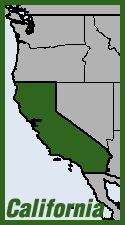 Sweet Leaf Pioneer owner Dave Manzanares in Eagle, Colo., must shut down his medical marijuana dispensary Oct. 31, even if he proceeds with plans to collect signatures for a special election to keep it open in the long term. On Aug. 23, Manzanares told members of the town board that he is circulating petitions to put the question to the voters, and asked for an extension beyond the Oct. 31 deadline established by a municipal ordinance. "Our family's future is in the balance here," Manzanares said.
Sweet Leaf Pioneer owner Dave Manzanares in Eagle, Colo., must shut down his medical marijuana dispensary Oct. 31, even if he proceeds with plans to collect signatures for a special election to keep it open in the long term. On Aug. 23, Manzanares told members of the town board that he is circulating petitions to put the question to the voters, and asked for an extension beyond the Oct. 31 deadline established by a municipal ordinance. "Our family's future is in the balance here," Manzanares said.

 A Michigan court of appeals ruled Aug. 23 that medicinal cannabis cannot be sold at private dispensaries. The defendants were owners of the
A Michigan court of appeals ruled Aug. 23 that medicinal cannabis cannot be sold at private dispensaries. The defendants were owners of the  The 20th annual
The 20th annual  A small Massachusetts-based company called
A small Massachusetts-based company called  Orange County Superior Court Judge David Chaffee ruled Aug. 19 that the city of Anaheim may legally prohibit medical cannabis dispensaries. This is the second hearing of Anaheim vs Qualified Patients' Association, which was remanded to the lower court by the 4th District Court of Appeal in Santa Ana last year. The court ruled that Anaheim's dispensary ban is a valid exercise of local police powers and is not pre-empted by Prop 215 or SB 420. The decision concedes that SB 420 protects patients and caregivers engaged in collective cultivation, but that protection is limited to cultivation, not distribution. The decision cites a litany of case law giving local government broad powers to regulate for nuisance abatement.
Orange County Superior Court Judge David Chaffee ruled Aug. 19 that the city of Anaheim may legally prohibit medical cannabis dispensaries. This is the second hearing of Anaheim vs Qualified Patients' Association, which was remanded to the lower court by the 4th District Court of Appeal in Santa Ana last year. The court ruled that Anaheim's dispensary ban is a valid exercise of local police powers and is not pre-empted by Prop 215 or SB 420. The decision concedes that SB 420 protects patients and caregivers engaged in collective cultivation, but that protection is limited to cultivation, not distribution. The decision cites a litany of case law giving local government broad powers to regulate for nuisance abatement. Superior Court Judge Paul Vortmann in California's Tulare County ruled Aug. 11 that a cannabis collective cannot operate on land zoned for agriculture, dismissing a property owner's arguments. "In this state, marijuana has never been classified as a crop or horticultural product," Vortmann wrote. Cannabis is a controlled substance, the ruling stated, adding that "the court finds as a matter of law that growing marijuana...is not an agricultural use of property."
Superior Court Judge Paul Vortmann in California's Tulare County ruled Aug. 11 that a cannabis collective cannot operate on land zoned for agriculture, dismissing a property owner's arguments. "In this state, marijuana has never been classified as a crop or horticultural product," Vortmann wrote. Cannabis is a controlled substance, the ruling stated, adding that "the court finds as a matter of law that growing marijuana...is not an agricultural use of property."





Recent comments
2 weeks 4 days ago
2 weeks 4 days ago
5 weeks 5 days ago
6 weeks 4 days ago
10 weeks 4 days ago
14 weeks 3 days ago
18 weeks 3 days ago
19 weeks 1 day ago
29 weeks 1 day ago
33 weeks 2 days ago